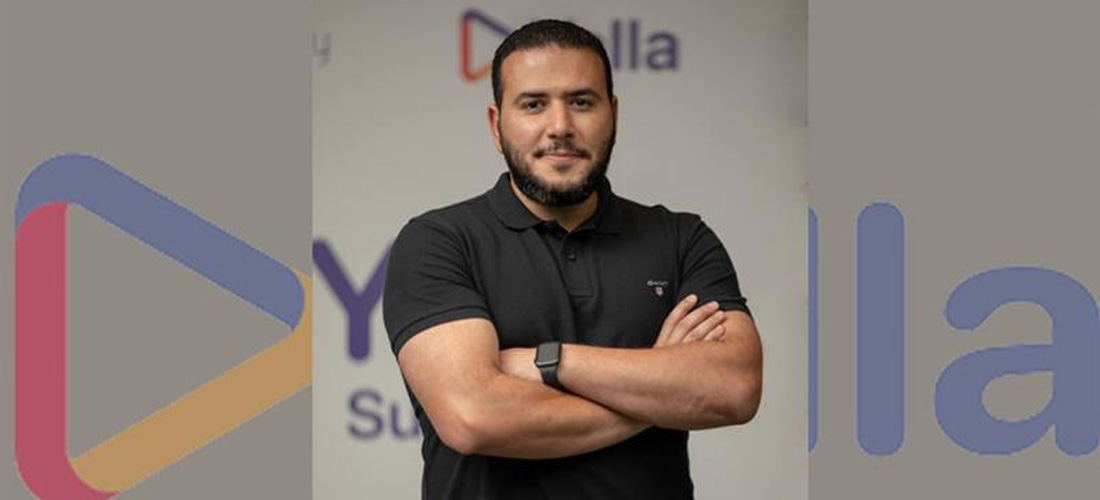ENTERPRISE Magazine Interview:
OUR FOUNDER OF THE WEEK- Every Tuesday, Founder of the Week looks at how a successful member of Egypt’s startup community got their big break, asks about their experiences running a business, and gets their advice for budding entrepreneurs. Speaking to us this week is Waleed Sadek, founder and CEO of Paysky (LinkedIn).
My name is Waleed Sadek, and I am the founder and CEO of Paysky. I’ve been in the payment industry for 17 years. I’m actually a medical doctor by study and training, but I’ve been interested in tech since my first year of medical school. I began learning programming and developing products alongside school. By the time I finished, I was already a senior manager and had worked at several companies, including multinationals. Eventually I decided to stick with software engineering.
I worked for several multinational corporations before launching my own business, and then Visa became one of my clients. We were meeting their objectives efficiently, so they offered me a job. I was in my early twenties, so I decided to leave the startup world for a while and join them because it was a fantastic chance to learn about and enter the financial services space. I was the head of innovations in the Middle East and North Africa before moving to London to lead the CEMEA strategy. My time at Visa was eye-opening, but the entrepreneurial siren began calling again.
I began by expanding on the knowledge I gained at Visa and researching the gaps I discovered there that no one was addressing. Because the market was not moving in the direction I expected it to, I considered doing it myself. I left Visa, formed a team, and founded Paysky, an innovative and disruptive company that has made significant changes in the region.
If you believe in your business, you put all of your cards on the table. I actually put all of my investments and savings into Paysky at some point. It was risky, but I had complete faith in what we were doing, and it has proven to be extremely successful and rewarding.
The most enjoyable aspect of my job is getting to strategize, execute, and deliver solutions for the market and industry. Working in a corporation has many advantages and perks, but you are still part of a larger scheme and are responsible for achieving the company’s goals. When you start your own business, you get to create and deliver your own vision.
What I like about the startup environment is the fast-paced growth, agility, and ability to respond to market changes in hours rather than days or months as corporates would. However, the start-up environment is fraught with anxiety. As responsibilities increase, so does the stress. When you grow, you hire more people and feel responsible for their families.
If I could give one piece of advice to someone thinking about starting their own business, it would be to master their space before attempting to tackle or disrupt it. They must gain sufficient, solid ground knowledge by working in the space for some time. They should understand the problems and then come up with ideas to solve them.
At Paysky, we develop electronic payment solutions and then take these electronic payments and digital financial service solutions and either white-label them to financial institutions so that they can offer them to customers, or take them directly to consumers under the Yalla brand. We are currently present in over ten markets, serving central banks, retail banks, telecom operators, and post institutions. We created a world-class payments infrastructure that aided in the promotion of electronic payments and financial inclusion in over ten countries. We are addressing the issue of access to efficient and innovative financial services.
We believe that efficient financial services are a must-have for a healthy economy. What we are creating will enable people who have previously been ignored or underserved to gain access to financial services. And we’re connecting our day-to-day work with a higher purpose that we all want to believe we’re working toward.
The first KPI we consider is purpose alignment. Every decision we make, we ask ourselves, “Is this decision aligned with our purpose?” Of course, there are financial metrics, revenue metrics, profitability metrics, and so on. However, our purpose is our reason for being.
I believe fundraising is overrated. Many people are losing sight of the importance of value creation and revenue generation in favor of focusing solely on fundraising. That is deceptive to future generations. It’s become a metric of success — how much money have I raised? — which is far from accurate. If you can run your business without raising funds, you’ll be much better off because you’ll be keeping the equity for yourself.
Consumer experience and user experience are two of my major areas of interest. It’s amazing how we build things from our own perspective and then consumers can have completely different reactions. We can be captives of our own assumptions, which is one of the major reasons why startups fail. They are creating solutions to non-existent problems. Don’t Make Me Think by Steve Krug is a great book on the subject that I recently read.
I always look to data for inspiration. When you monitor the performance and transactions of your customers, the raw data is then transformed into insights. Data never lies. I also like to look at the market itself. When you enter a new territory, you get to survey their culture, their experiences, their apps, and their advertisements, and where they promote their own offerings. It reveals how people perceive value.
One local startup that has really impressed me is Naqla. They’re attempting to Uberize, if you will, the process of truck transportation. It’s a massively underserved sector of the economy, with challenges ranging from infrastructure to logistics to regulation. I think what they’re doing will have a very positive impact on the economic performance and production of many industries.
More Details
enterprise.press

